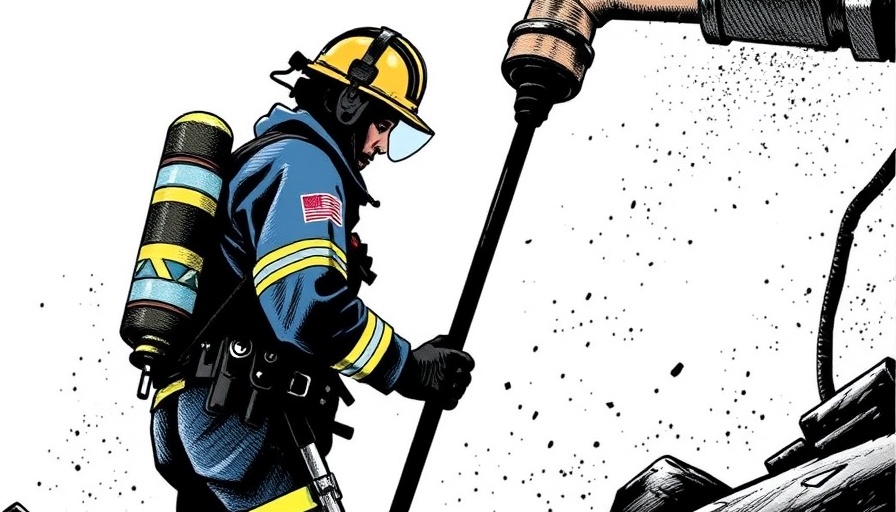
Understanding the Current Challenges Facing NIOSH
The National Institute for Occupational Safety and Health (NIOSH) has come under scrutiny recently, facing a wave of lawsuits and lobbying efforts that threaten its operational integrity. As custodians of workplace safety, NIOSH's challenges are not just bureaucratic—they resonate deeply within the construction and commercial development sectors where safety standards are paramount.
The Importance of NIOSH to Business Integrity
For business owners and property developers, NIOSH plays a crucial role in providing guidelines that enhance workplace safety. With increasing litigation targeting what many perceive as NIOSH’s shortcomings in effectively managing health guidelines, the implications could be far-reaching for construction firms and their clients. A robust NIOSH translates to a safer work environment, which ultimately protects businesses from costly lawsuits and enhances their reputation as socially responsible entities.
Impact of Lobbying and Legal Battles
The recent lobbying efforts aimed at influencing NIOSH's policy decisions highlight the intricate link between politics and workplace safety. As various industries attempt to redefine safety standards to minimize their liabilities, the potential for compromised safety practices emerges, putting workers at risk. It's essential for property developers to stay informed about these shifts—as policies affecting NIOSH can directly impact their regulatory obligations and operational costs.
Real-world Case Study: Safety Protocols in Action
Consider a regional construction firm that implemented stringent safety protocols based on NIOSH guidelines. Following a tragic incident at a job site that involved negligence, the firm faced not only legal repercussions but also reputational damage. By adhering to NIOSH recommendations, they were not only able to rebuild their project but also restore trust within the community and their clients. This is a clear testament to the essential nature of NIOSH’s guidance in protecting workers and ensuring corporate stability.
Future Predictions: Why Your Business Should Care
The future effectiveness of NIOSH as an authority on workplace safety hangs in the balance. Should the current trend of interference persist, we may witness a regression in safety standards, which can be detrimental to businesses invested in sustainable practices. For cost-conscious business owners and facility managers, understanding this landscape will be critical in navigating upcoming challenges and ensuring compliance without compromise.
Taking Action: What You Can Do
As a business owner or developer, staying informed about NIOSH's condition is paramount. Participate in industry discussions, advocate for robust safety standards, and develop a proactive safety culture within your organization. Collaboration between businesses and safety authorities can pave the way for better regulations and adherence to vital safety protocols. By uniting for a safer work environment, you foster not only a resilient company but a healthier community overall.
The changes affecting NIOSH should spur action among stakeholders. Resilient businesses must engage with evolving safety standards and demonstrate a commitment to workplace health. By underscoring the value of NIOSH, we ensure that safety and compliance remain priorities for all.
 Add Row
Add Row  Add
Add 




Write A Comment